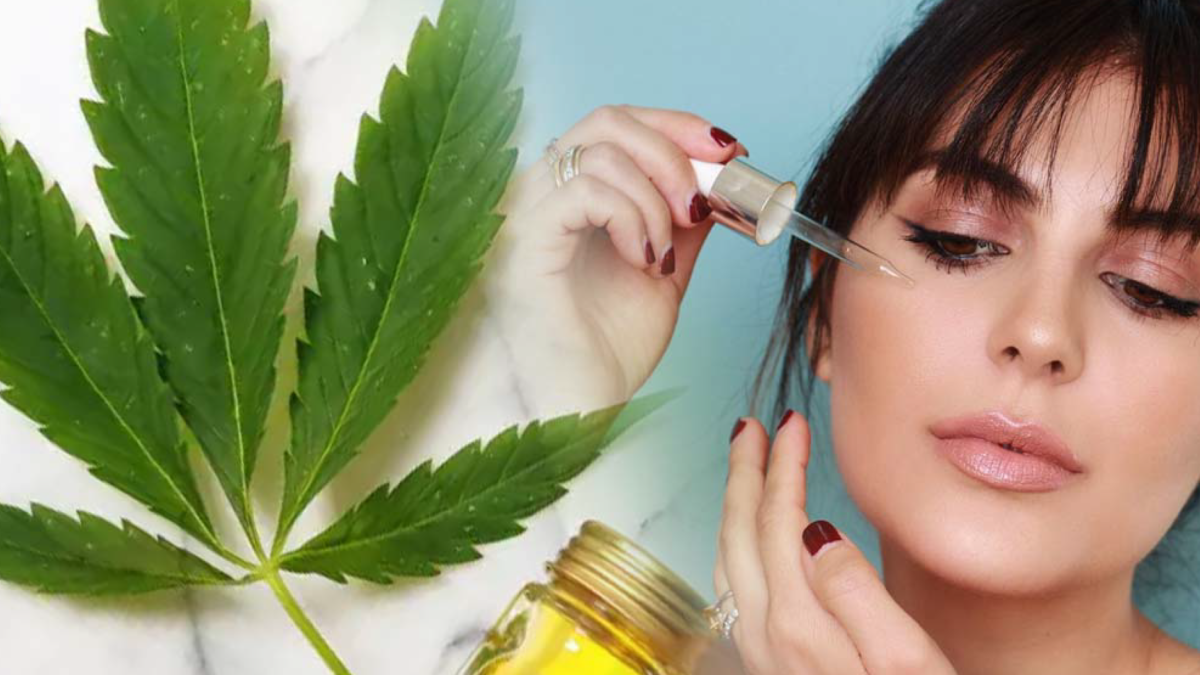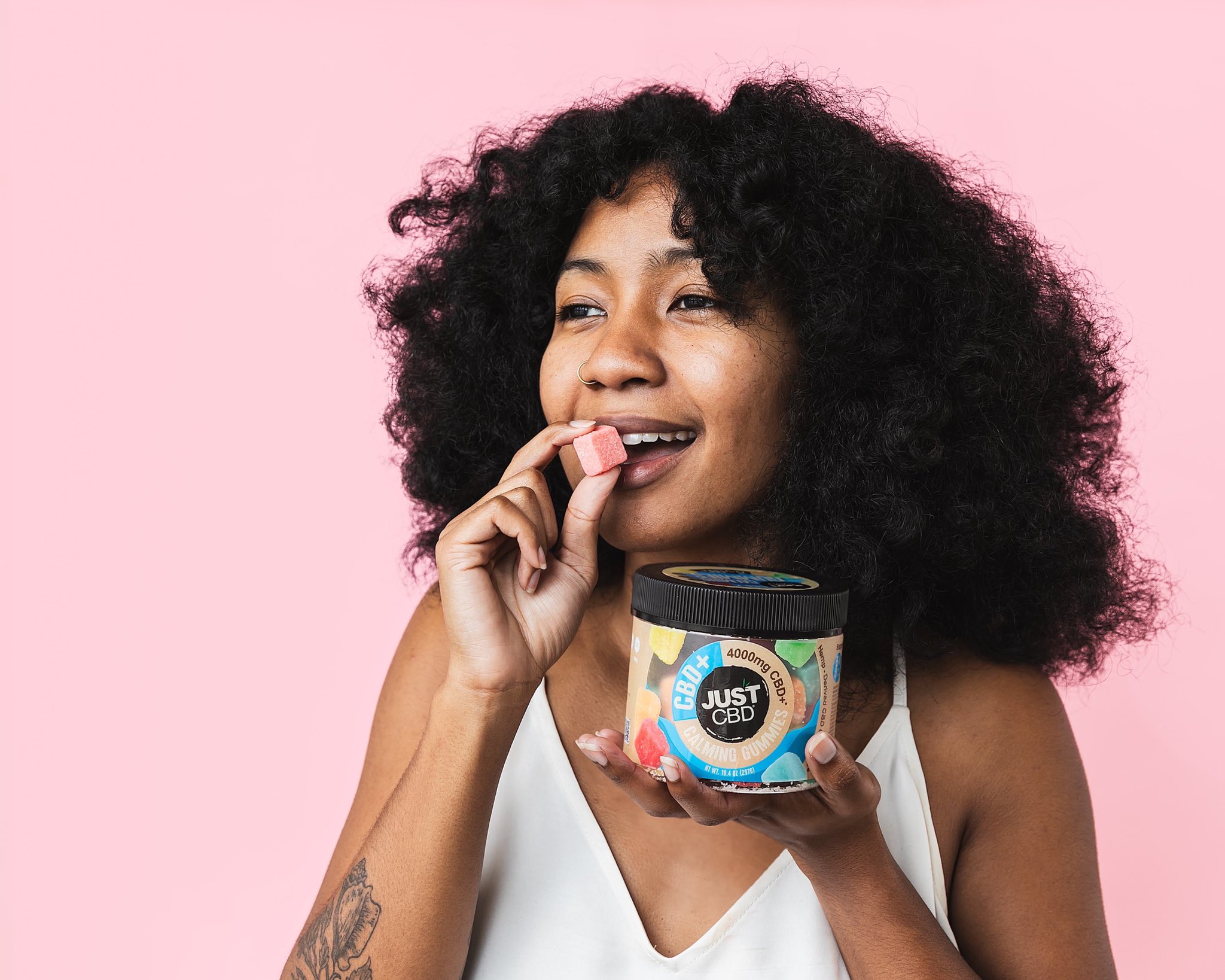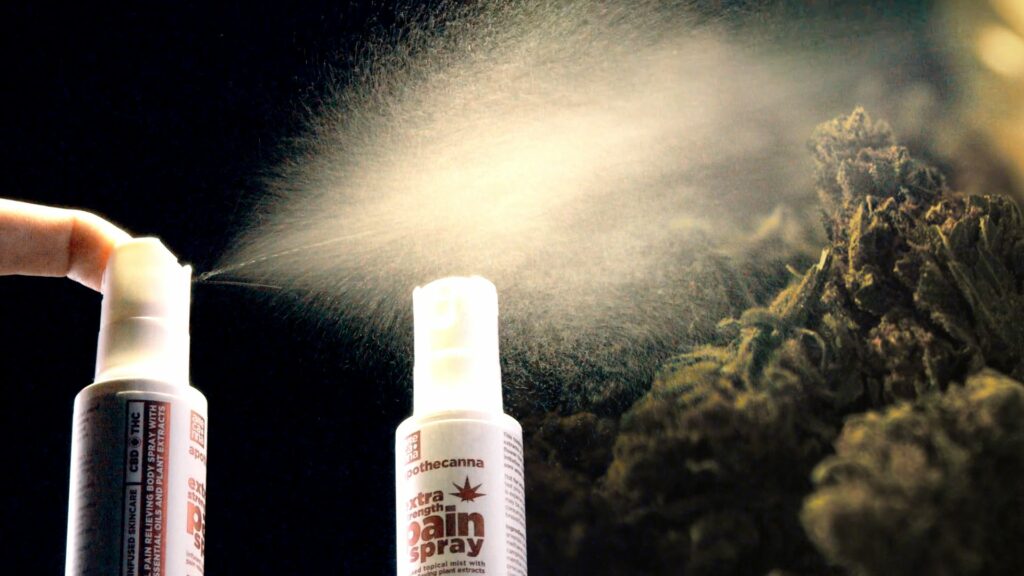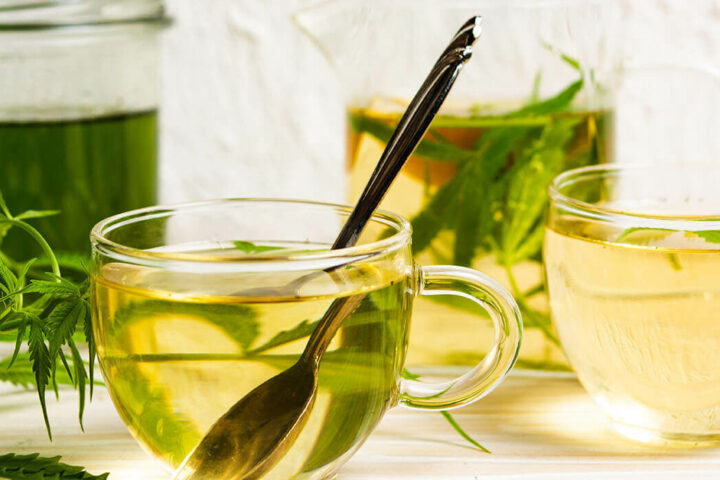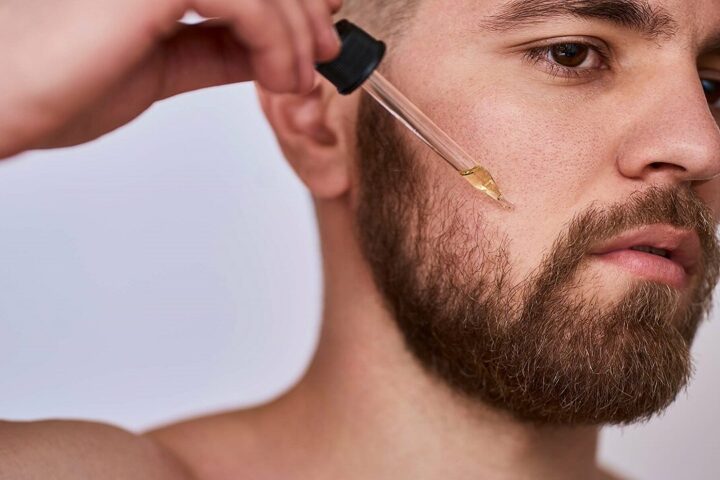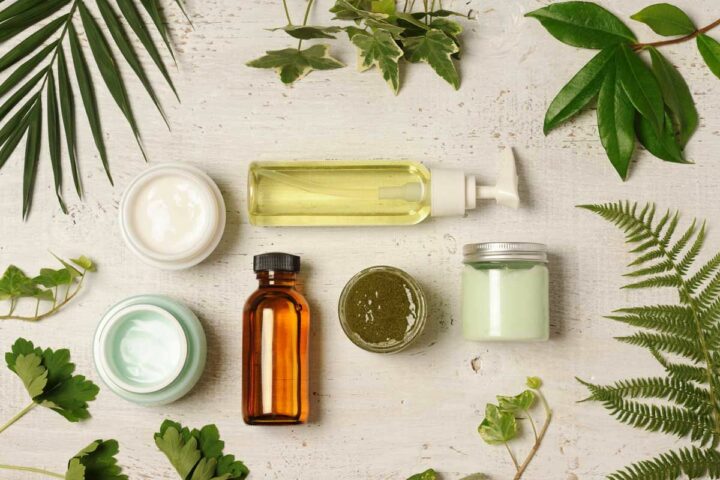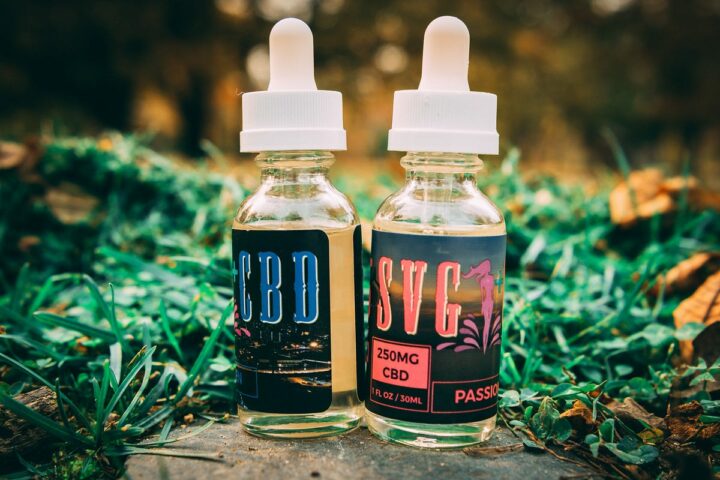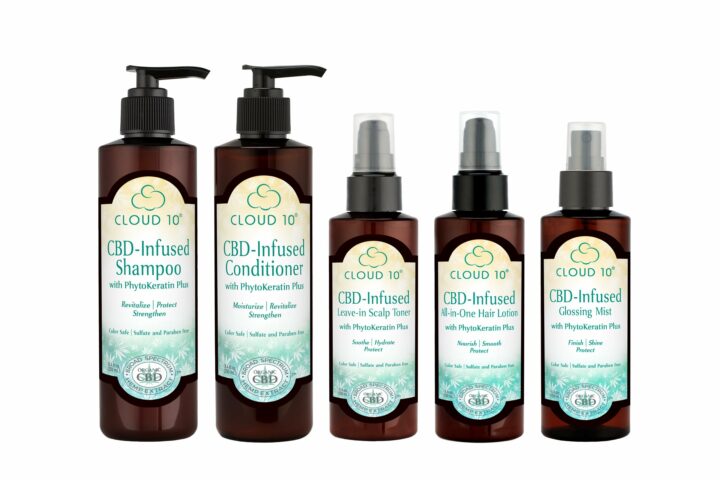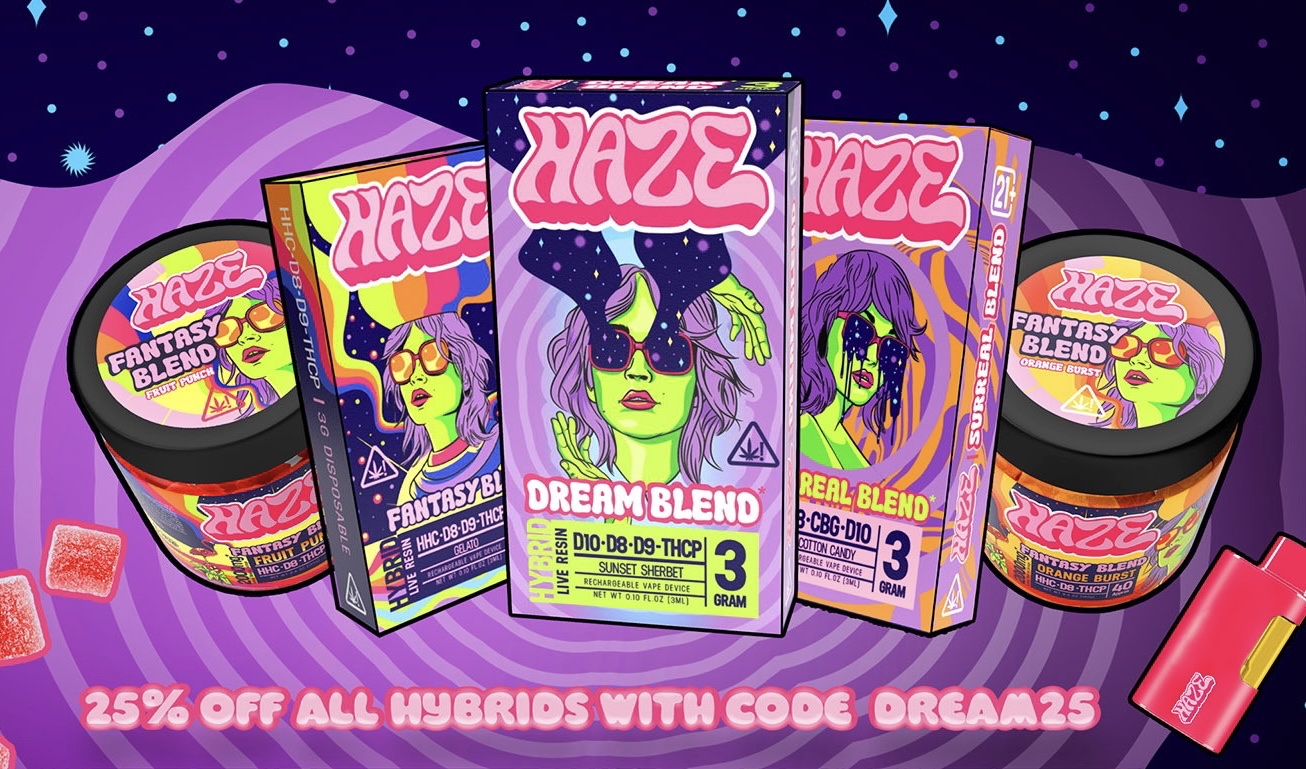CBD SPF Enriched Skin Care
What is CBD SPF Enriched Skin Care
CBD SPF-enriched skincare is a type of skincare product that combines the benefits of CBD (cannabidiol) and SPF (sun protection factor) to protect and nourish the skin. Here is a comprehensive guide on what CBD SPF-enriched skincare is and how it works.
What is CBD?
CBD is a natural compound derived from the hemp plant that has gained popularity in recent years for its potential health benefits. CBD is believed to have anti-inflammatory, antioxidant, and moisturizing properties, which can help to improve the overall health and appearance of the skin.
What is SPF?
SPF is a measure of how well a sunscreen product protects the skin from the harmful effects of the sun’s ultraviolet (UV) rays. SPF is measured on a scale of 1 to 50+, with higher numbers indicating greater protection. SPF protects against UVB rays, which are the rays that cause sunburn and skin cancer.
How does CBD SPF-enriched skincare work?
CBD SPF-enriched skincare products combine the benefits of CBD and SPF to provide comprehensive protection and nourishment for the skin. CBD helps to soothe and moisturize the skin, while SPF protects the skin from the harmful effects of the sun’s UV rays.
CBD SPF-enriched skincare products can come in many forms, including moisturizers, serums, and sunscreens. They are designed to be used daily as part of a regular skincare routine to help prevent sun damage and maintain healthy, radiant skin.
Benefits of CBD SPF-enriched skincare
The benefits of CBD SPF-enriched skincare are numerous. By combining the benefits of CBD and SPF, these products can help to:
- Protect the skin from the harmful effects of the sun’s UV rays
- Prevent sunburn and skin cancer
- Reduce inflammation and redness in the skin
- Hydrate and moisturize the skin
- Improve the overall health and appearance of the skin
Choosing a CBD SPF-enriched skincare product
When choosing a CBD SPF-enriched skincare product, it’s important to look for products that are:
- Broad-spectrum: This means they protect against both UVA and UVB rays.
- Water-resistant: This ensures that the product stays on the skin even when sweating or swimming.
- Non-comedogenic: This means the product will not clog pores, which can lead to acne breakouts.
It’s also important to choose products from reputable brands that use high-quality, natural ingredients and have been third-party tested for purity and potency.
In conclusion,
CBD SPF-enriched skincare products combine the benefits of CBD and SPF to provide comprehensive protection and nourishment for the skin. By choosing a high-quality product and incorporating it into your regular skincare routine, you can help to prevent sun damage and maintain healthy, radiant skin.
How to use CBD SPF Enriched Skin Care
CBD SPF-enriched skincare products are designed to be used as part of a regular skincare routine to help protect and nourish the skin. Here is a comprehensive guide on how to use CBD SPF-enriched skincare products.
Choose the right product
Before using a CBD SPF-enriched skincare product, it’s important to choose the right product for your skin type and needs. Look for products that are broad-spectrum, water-resistant, and non-comedogenic. You should also choose products that contain high-quality, natural ingredients and have been third-party tested for purity and potency.
Apply the product correctly
When applying a CBD SPF-enriched skincare product, it’s important to apply it correctly to ensure maximum effectiveness. Here’s how:
- Cleanse the skin: Start by cleansing the skin to remove any dirt, oil, or makeup. This will help the product to penetrate the skin and provide maximum protection and nourishment.
- Apply the product: Apply the product to your face and neck, making sure to cover all areas evenly. Be sure to apply enough product to achieve the desired level of SPF protection.
- Reapply regularly: To maintain maximum protection, it’s important to reapply the product regularly, especially if you’re spending time outdoors or in the water. Follow the product’s instructions for reapplication.
Incorporate into your regular skincare routine
CBD SPF-enriched skincare products should be incorporated into your regular skincare routine to provide comprehensive protection and nourishment for your skin. Here’s how to do it:
- Use it daily: Use the product daily as part of your morning skincare routine. This will help to protect your skin from the harmful effects of the sun’s UV rays and provide nourishment and hydration throughout the day.
- Follow with other skincare products: After applying the CBD SPF-enriched skincare product, follow with other skincare products, such as a moisturizer, serum, or eye cream, as needed.
- Use at least 30 minutes before sun exposure: Apply the product at least 30 minutes before sun exposure to allow it to fully absorb into the skin and provide maximum protection.
In conclusion,
CBD SPF-enriched skincare products are an excellent addition to any skincare routine to help protect and nourish the skin. By choosing the right product, applying it correctly, and incorporating it into your regular skincare routine, you can help to prevent sun damage and maintain healthy, radiant skin.
CBD SPF Enriched Skin Care Dosing
CBD SPF-enriched skincare products are designed to provide protection from the sun’s harmful UV rays while also nourishing and hydrating the skin. Here is a comprehensive guide on dosing CBD SPF-enriched skincare products.
Understand the SPF level
The first step in dosing a CBD SPF-enriched skincare product is to understand the SPF level. SPF stands for sun protection factor and refers to the product’s ability to protect the skin from UVB rays. The higher the SPF level, the more protection the product will provide.
Most dermatologists recommend using a product with an SPF of at least 30. This level of SPF will block about 97% of UVB rays. Higher SPF levels can provide slightly more protection, but it’s important to remember that no product can provide 100% protection from the sun’s harmful rays.
Determine the amount of product needed
Once you have chosen a CBD SPF-enriched skincare product with the appropriate SPF level, the next step is to determine the amount of product needed. The amount of product needed will depend on several factors, including:
- The size of the area being covered: The amount of product needed will vary depending on the size of the area being covered. For example, you may need more product to cover your entire face and neck than you would to cover just your nose and cheeks.
- The consistency of the product: The consistency of the product will also affect the amount needed. Thicker products may require more product to achieve adequate coverage.
- The level of activity: If you will be sweating or swimming, you may need to apply more product to maintain adequate protection.
As a general rule of thumb, you should aim to apply about a nickel-sized amount of product to your face and neck. This will provide adequate coverage for most people.
Reapply as needed
It’s important to reapply CBD SPF-enriched skincare products regularly to maintain adequate protection. Most products should be reapplied every two hours, or more frequently if you are swimming or sweating.
When reapplying the product, be sure to follow the same dosing guidelines as when applying it initially. Apply enough product to achieve the desired level of SPF protection.
In conclusion,
dosing CBD SPF-enriched skincare products requires an understanding of the SPF level, the amount of product needed, and the need for reapplication. By following these guidelines, you can help to protect your skin from the sun’s harmful rays while also nourishing and hydrating it with CBD.
Benefits of CBD SPF Enriched Skin Care
CBD SPF-enriched skincare products combine the benefits of CBD with the protective power of SPF to provide comprehensive protection and nourishment for the skin. Here are some of the key benefits of using CBD SPF-enriched skincare products:
Protection from UV rays
One of the primary benefits of using CBD SPF-enriched skincare products is protection from the sun’s harmful UV rays. UV rays can cause skin damage, premature aging, and even skin cancer. By using a product with a high SPF level, you can help to protect your skin from these harmful effects.
Nourishment for the skin
CBD is known for its powerful antioxidant and anti-inflammatory properties, which can help to nourish and protect the skin. CBD can help to reduce inflammation, soothe irritation, and promote healthy cell growth, all of which can contribute to healthy, radiant skin.
Hydration
CBD SPF-enriched skincare products often contain hydrating ingredients, such as hyaluronic acid or glycerin, which can help to hydrate and moisturize the skin. Hydrated skin is less prone to dryness, flakiness, and fine lines, and is more able to protect itself against environmental stressors.
Anti-aging benefits
CBD SPF-enriched skincare products can help to reduce the appearance of fine lines and wrinkles by nourishing and protecting the skin. CBD can also help to stimulate collagen production, which can help to keep the skin looking plump and youthful.
Non-comedogenic
CBD SPF-enriched skincare products are often non-comedogenic, which means they won’t clog pores or contribute to acne breakouts. This makes them an excellent choice for people with oily or acne-prone skin.
Gentle and natural
CBD SPF-enriched skincare products are often made with gentle, natural ingredients that are safe and effective for all skin types. They are free from harsh chemicals and additives that can irritate the skin and cause allergic reactions.
In conclusion,
CBD SPF-enriched skincare products offer a range of benefits for the skin, including protection from UV rays, nourishment, hydration, anti-aging benefits, non-comedogenic properties, and gentle, natural ingredients. By incorporating these products into your skincare routine, you can help to protect and nourish your skin for a healthy, radiant complexion.
Legality of CBD in the UK
CBD, or cannabidiol, is a non-psychoactive compound found in the cannabis plant that is known for its potential therapeutic benefits. In the UK, the legality of CBD is complex and can be confusing for consumers. Here is a comprehensive guide on the legality of CBD in the UK.
CBD is not a controlled substance
In the UK, CBD is not considered a controlled substance. This means that it is legal to possess, buy, and sell CBD products as long as they meet certain criteria.
THC content must be less than 0.2%
CBD products sold in the UK must contain less than 0.2% THC (tetrahydrocannabinol), which is the psychoactive compound in cannabis that produces a “high.” Products that contain more than 0.2% THC are considered illegal and are classified as a controlled substance.
Products must be derived from an approved strain of cannabis
CBD products sold in the UK must be derived from an approved strain of cannabis that is listed on the EU’s Common Catalogue of Varieties of Agricultural Plant Species. This means that products made from strains that are not listed on the catalogue are considered illegal.
Products must be marketed as a food supplement or cosmetic
CBD products sold in the UK must be marketed as a food supplement or cosmetic and cannot make any medical claims. This means that products cannot be marketed as a treatment for any medical conditions or diseases.
Products must be tested and labeled correctly
CBD products sold in the UK must be tested and labeled correctly to ensure that they meet the legal requirements. Products must be labeled with the CBD content, THC content, and a batch number, and must also undergo third-party testing to ensure that they are safe and meet quality standards.
In conclusion,
CBD is legal in the UK as long as it meets certain criteria. Products must contain less than 0.2% THC, be derived from an approved strain of cannabis, be marketed as a food supplement or cosmetic, and be tested and labeled correctly. Consumers should be aware of these legal requirements when purchasing CBD products to ensure that they are purchasing legal and safe products.
FAQs-CBD SPF Enriched Skin Care
Is CBD really good for skincare?
CBD has gained popularity in skincare due to its potential benefits. CBD, or cannabidiol, possesses anti-inflammatory and antioxidant properties, which can be beneficial for the skin. It may help soothe inflammation, reduce redness, calm skin irritation, and potentially alleviate conditions like acne and eczema. CBD-infused skincare products, such as creams, lotions, and serums, may help hydrate and moisturize the skin, improving its overall texture and elasticity. While more scientific research is needed to fully understand the effects of CBD on skincare, many individuals report positive results and improved skin health with the use of CBD products. It’s important to choose high-quality CBD skincare products from reputable brands and consult with a dermatologist for personalized guidance on incorporating CBD into your skincare routine.
Why add CBD to your skincare routine?
Adding CBD to your skincare routine can offer potential benefits for your skin health. CBD, or cannabidiol, possesses anti-inflammatory and antioxidant properties that may help soothe inflammation, reduce redness, and calm skin irritation. It can also potentially alleviate conditions like acne and eczema. CBD-infused skincare products, such as creams, serums, and masks, can provide hydration and moisturization to the skin, improving its overall texture and elasticity. Additionally, CBD may help protect the skin from environmental stressors and free radicals, which can contribute to premature aging and skin damage. While individual experiences may vary, incorporating CBD into your skincare routine can offer a natural and potentially effective option for promoting healthy, balanced, and rejuvenated skin. Choosing high-quality CBD skincare products from reputable brands and consulting with a dermatologist can provide personalized guidance on integrating CBD into your skincare regimen.
What does CBD do in face cream?
CBD, or cannabidiol, in face cream can offer potential benefits for the skin. CBD possesses anti-inflammatory and antioxidant properties, which can help soothe inflammation, reduce redness, and calm skin irritation. It may also assist in managing conditions like acne and eczema. Additionally, CBD can promote hydration and moisturization, improving the overall texture and elasticity of the skin. Its antioxidant properties can help protect the skin from environmental stressors and free radicals, potentially delaying the signs of aging. While individual experiences may vary, incorporating CBD into face cream can be a natural and potentially effective way to support healthy, balanced, and rejuvenated skin. It’s important to choose high-quality face creams that contain CBD from reputable brands and consult with a dermatologist for personalized guidance on using CBD-infused face creams.
Does CBD cream help with rosacea?
CBD cream may potentially help alleviate the symptoms of rosacea. While scientific research on the specific effects of CBD on rosacea is limited, CBD is known for its anti-inflammatory properties, which could be beneficial for reducing redness, swelling, and irritation associated with rosacea. Additionally, CBD has been reported to have soothing and moisturizing effects on the skin, which may contribute to overall skin health and potentially provide relief for individuals with rosacea. However, it is advisable to consult with a dermatologist or healthcare professional before incorporating CBD cream into your skincare routine to ensure it is appropriate for your specific condition.
What cream calms down rosacea?
There are several creams that are commonly used to calm down rosacea symptoms. One of the most frequently recommended options is a topical cream containing ingredients such as azelaic acid, metronidazole, or sulfacetamide. These ingredients have anti-inflammatory properties and can help reduce redness, swelling, and irritation associated with rosacea. Additionally, creams containing green tea extract, licorice root extract, or niacinamide are also known for their soothing and calming effects on the skin. It is important to consult with a dermatologist or healthcare professional to determine the most suitable cream for your individual needs and to ensure it aligns with your specific rosacea treatment plan.
What is the best anti-inflammatory cream for rosacea?
Determining the “best” anti-inflammatory cream for rosacea can vary depending on individual preferences and skin sensitivities. However, some commonly recommended options include topical creams containing ingredients like azelaic acid, metronidazole, or ivermectin. These ingredients have shown effectiveness in reducing inflammation associated with rosacea and are often prescribed by dermatologists. Additionally, creams with natural ingredients like chamomile, aloe vera, or colloidal oatmeal can also provide soothing and anti-inflammatory benefits. It’s essential to consult with a dermatologist or healthcare professional to determine the most suitable and effective anti-inflammatory cream for your specific condition and to ensure it aligns with your overall rosacea treatment plan.
What is the best thing to put on your face for rosacea?
When it comes to managing rosacea, the “best” products for your face can vary depending on your individual needs and sensitivities. However, gentle and non-irritating skincare products are generally recommended. A mild, fragrance-free cleanser specifically formulated for sensitive skin is a good starting point. Follow it up with a moisturizer that is also fragrance-free and designed for sensitive or rosacea-prone skin. Look for ingredients like ceramides, hyaluronic acid, and niacinamide, which can help hydrate and soothe the skin. Additionally, using a broad-spectrum sunscreen with SPF 30 or higher is crucial for protecting your skin from potential triggers like sun exposure. It is advisable to consult with a dermatologist who can assess your specific needs and recommend the most suitable products for your individual condition.
What helps a rosacea flare up on face?
Several strategies can help manage and reduce a rosacea flare-up on the face. Firstly, identifying and avoiding triggers that worsen symptoms, such as spicy foods, alcohol, extreme temperatures, and certain skincare products, is crucial. Gentle skincare practices, including using a mild, non-irritating cleanser and moisturizer, can help maintain skin barrier function and minimize irritation. Applying a fragrance-free sunscreen with at least SPF 30 daily can protect the skin from sun damage, a common trigger for rosacea. Topical creams or gels prescribed by a dermatologist, containing ingredients like azelaic acid, metronidazole, or ivermectin, can help reduce inflammation and redness during flare-ups. In severe cases, oral medications or laser treatments may be recommended. Consulting with a dermatologist is essential for personalized advice and treatment options for managing rosacea flare-ups effectively.
How I healed my rosacea naturally?
While there is currently no known cure for rosacea, there are natural approaches that some individuals have found helpful in managing their symptoms. Adopting a gentle skincare routine using mild, non-irritating products can be beneficial. Avoiding triggers such as spicy foods, alcohol, and excessive sun exposure may also help reduce flare-ups. Some people have reported positive results from incorporating natural remedies like green tea, chamomile, or aloe vera into their skincare routine, as these ingredients have anti-inflammatory properties. Additionally, maintaining a healthy lifestyle with a balanced diet, regular exercise, and stress management techniques may contribute to overall skin health. It’s important to note that individual experiences with natural remedies can vary, and it is always recommended to consult with a dermatologist or healthcare professional for personalized guidance and to ensure the chosen approach aligns with your specific needs and condition.
What deficiency causes rosacea?
The exact cause of rosacea is not fully understood, but it is not directly linked to a specific nutrient deficiency. However, certain deficiencies or imbalances in nutrients may potentially contribute to worsening rosacea symptoms in some individuals. For instance, deficiencies in vitamin D, B vitamins (particularly B vitamins involved in skin health like niacin), and essential fatty acids have been suggested as factors that may exacerbate inflammation and skin sensitivity associated with rosacea. However, it’s important to note that addressing these deficiencies alone may not completely resolve rosacea, as it is a complex condition influenced by various factors. Consulting with a healthcare professional or dermatologist can help identify any potential underlying nutritional imbalances and provide guidance on a well-rounded approach to managing rosacea symptoms.
Is there a magic cure for rosacea?
No, there is currently no known magic cure for rosacea. Rosacea is a chronic skin condition that varies in severity and triggers from person to person. While there are treatments available to help manage and control symptoms, such as topical creams, oral medications, laser therapy, and lifestyle changes, it is important to understand that rosacea is a complex condition without a one-size-fits-all solution. Each individual may respond differently to various treatments, and it may take time to find the most effective approach for managing their specific symptoms. Consulting with a dermatologist or healthcare professional can provide personalized guidance and help develop a treatment plan tailored to an individual’s needs. It’s important to have realistic expectations and focus on long-term management rather than seeking a “magic cure.”
Can anything clear rosacea?
While there is currently no known cure for rosacea, several treatments can help manage and control its symptoms effectively. Prescription medications, such as topical creams or gels containing ingredients like azelaic acid, metronidazole, or ivermectin, can help reduce inflammation and redness. In some cases, oral medications like antibiotics or isotretinoin may be prescribed by a dermatologist. Laser therapy or intense pulsed light (IPL) treatments can target visible blood vessels and reduce redness. Additionally, adopting a gentle skincare routine, avoiding triggers, protecting the skin from sun exposure, and managing stress levels can contribute to symptom improvement. It’s important to consult with a dermatologist or healthcare professional for a proper diagnosis and to develop an individualized treatment plan for effectively managing and minimizing rosacea symptoms.
How do you reverse rosacea?
Rosacea is a chronic condition, and it cannot be fully reversed. However, there are various treatment options available to help manage and control its symptoms effectively. Topical medications containing ingredients like azelaic acid, metronidazole, or ivermectin can help reduce inflammation and redness. Oral medications such as antibiotics or isotretinoin may be prescribed in more severe cases. Laser therapy or intense pulsed light (IPL) treatments can target visible blood vessels and reduce redness. Adopting a gentle skincare routine, avoiding triggers, protecting the skin from sun exposure, and managing stress levels can also contribute to symptom improvement. While these treatments can help control symptoms, it’s important to work closely with a dermatologist or healthcare professional to develop an individualized treatment plan that suits your specific needs.
Does rosacea get worse with age?
Rosacea is a chronic condition that tends to progress over time, but it doesn’t affect everyone in the same way. While some individuals may experience worsening symptoms as they age, others may find their symptoms remain relatively stable or even improve. Factors such as genetics, lifestyle choices, and proper management can influence the progression of rosacea. In general, untreated or unmanaged rosacea may gradually worsen, leading to increased redness, flushing, and the development of visible blood vessels. However, early diagnosis, proper treatment, and diligent skincare routines can help control and minimize the progression of rosacea, allowing individuals to effectively manage their symptoms and prevent potential aggravation with age. Regular consultations with a dermatologist can provide guidance on managing rosacea and adapting treatment plans as needed.
Is there a cure for rosacea in 2023?
As of my knowledge cutoff in September 2021, there is no known cure for rosacea. While ongoing research and advancements in medical science may lead to new treatment options, it is important to note that there is no specific cure for rosacea as of 2023. Current treatment approaches focus on managing and controlling symptoms to minimize flare-ups and improve quality of life. These treatments include topical medications, oral medications, laser therapy, lifestyle changes, and skincare routines tailored to individual needs. It is recommended to consult with a dermatologist or healthcare professional for the most up-to-date information on available treatments and to develop a personalized management plan for rosacea.
- Expert Guide to Jenny Kush Weed Strain Information - April 20, 2024
- Expert Guide to Orange Creamsicle (Creamsicle) Weed Strain Information - April 20, 2024
- Expert Guide to Lemon Kush (Cali Lemon Kush) Weed Strain Information - April 20, 2024


